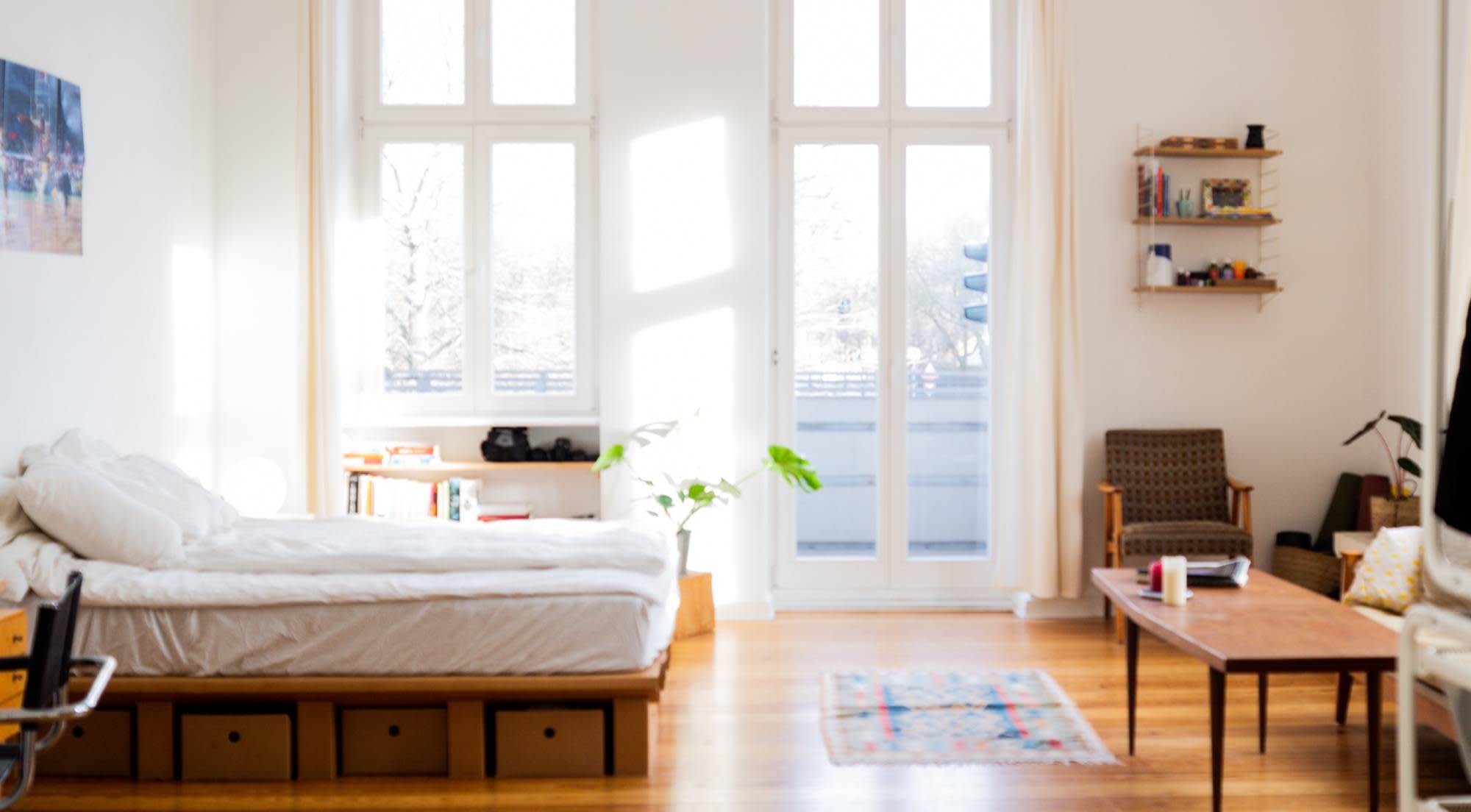Understand your tenant rights in Spain as an expat
Tenant rights in Spain: What internationals need to know before signing a tenancy agreement.
Marle
Different countries come with different rules. Knowing your tenant rights in Spain is key to prevent you from signing your tenancy agreement blindfolded.
3 steps before moving into your new home
Before you hang up your clothes in the wardrobe of your new home in Spain, there are 3 basic steps you should follow:
- Inspect the accommodation beforehand
- Read and understand your rental contract
- Pay your deposit
1. Inspect the accommodation beforehand
Before you sign your tenancy agreement, you should inspect your new accommodation thoroughly when you receive the keys.
Note down in a list:
- What is the condition of the accommodation?
- What is the condition of the furniture?
- Does the accommodation have mould or damp?
- Are doors, windows, appliances damaged?
Don't just write down notes, take photos of your new home. Some owners or agencies take photos when you move in and ask you to sign off on them when you move in.
An inspection is crucial before signing your tenancy agreement so that you aren't held responsible for any damage afterwards. Besides, request information on who is going to take care of the repairs in written form.

2. Read and understand your tenancy agreement
In Spain, you can sign a rental contract (contrato de arrendamiento) verbally or in writing. But without a written rental agreement, it can backfire for you if you don't understand the your rental rights and contract.
Insist that the landlord gives you a written tenancy agreement.
Duration of a tenancy agreement
There are 2 types of rental agreements, based on their length:
- Short-term (Contrato de arrendamiento de temporada)
- Long-term (Arriendo de vivienda)
Short-term rental agreements
A short-term rental agreement (Contrato de arrendamiento de temporada) is for a period of up to a year. Such agreements are not extendable and you’d have to vacate the property after the period listed in the contract has expired.
Long-term rental agreements
A rental contract is considered to be long term (arriendo de vivienda) in cases when the rental period is at least a year. Typically, such leases often are set for 12 months but can be extended following a discussion with the landlord.
The maximum period up to which the contract can be extended depends on whether or not your landlord is a company. An extension is possible for:
- Up to 5 years if the landlord is a private individual
- Up to 7 years if the landlord is a company
Regardless of the type of landlord, there are 2 key moments throughout the long-term rental contract — after the 1st year and at the end of the maximum permitted period.
After 1 year
After the 1st year of the tenancy agreement, the landlord can claim the accommodation for his use (for themselves or their relatives). In this case, the landlord must give you, the tenant, 2 months' notice. Attention: The landlord must have stated this in the tenancy agreement.
Has the landlord still not taken over the accommodation for personal use after 3 months? Then you as the tenant can take over the accommodation again within 30 days at the same rental conditions and for up to 5 years.
After 5 (or 7) years
If your landlord doesn't terminate your tenancy 4 months before the end of the 5 years, the tenancy is automatically extended annually for a maximum of 3 more years. As a tenant, you must give 2 months' notice before the end of the contract.
For example, if you start your tenancy on 1 May 2024, your landlord must give you notice before 1 January 2029 if they want to end the tenancy after 5 years.
Termination of your tenancy agreement
Moving to another neighbourhood of Barcelona after all? No problem, you’re not tied to your accommodation forever.
As a tenant, you can end your tenancy agreement:
- After 6 months of residing in the property
- With a 30-day notice period
Typically, landlords include a clause asking for 1 month's rent for every year of the remaining contract. If your contract is shorter than a year, you may have to pay rent in proportion to the remaining time left. If there's no clause, you don't have to pay any compensation for terminating early.
You can terminate the tenancy agreement before the 6 months if there's a clause in your tenancy agreement. You can also terminate the contract early and without a notice period if the landlord:
- Fails to carry out necessary repairs and maintenance of the accommodation
- Unnecessarily disturbs the tenant
Rent increases after moving in
How much is a landlord allowed to increase your rent during your tenancy? If the landlord makes improvements to your accommodation, the landlord is allowed to increase the rent.
However, the rent must meet certain standards and can't be more than 20% higher than your current rent.

3. Pay your deposit
Before you move in, the landlord has the right to ask you for a deposit. The deposit amount is legally capped to a maximum of 1 month worth of rent. However, landlords can request a higher amount depending on the risk associated with your tenant profile. At the end of your 5 year tenancy, the landlord can adjust the amount of the deposit to reflect the value if you renew.
Be careful: In Spain, landlords often ask their tenants to pay the deposit in cash. Insist on transferring the deposit. That way you'll have proof of payment on paper.
Here's the good news: According to the Landlord and Tenant Law (Ley de Arrendamientos Urbanos or LAU), landlords must declare the deposit to an administrative authority within the respective autonomous community so that it can be protected. Many landlords don't know this. If your landlord doesn't mention registration, tell them to register your deposit there.
You should get your deposit back within 1 month of moving out.
These are your tenant rights in Spain
As a tenant in Spain, you're allowed to make improvements to your accommodation. This means that you can hang shelves on the wall or paint the walls. However, you must first get written permission from your landlord.
Have you already hung picture frames on your wall and painted walls without getting permission? The landlord can ask you to restore the original condition when you move out.
What can the landlord do and what can't they do?
It's difficult for internationals to understand what a landlord is allowed to do and what they're not allowed to do in Spain.
| Do's | Don'ts |
|---|---|
| State in the tenancy agreement that the tenant must inform the landlord if they want to make improvements (paint walls, hang shelves, etc.). | Go into your accommodation without notice or permission. |
| Ask the tenant to restore the place to its original condition when he or she moves out. | Sell the accommodation during your tenancy. You cannot legally be kicked out of the accommodation when you sell it if the tenancy is still ongoing. |
Besides, the landlord may end the tenancy agreement with you if:
- You have not paid the monthly rent
- you have not paid the deposit for the accommodation
- You sublet the accommodation
- You have caused serious damage to the accommodation
- You make noise or engage in illegal, unhealthy or dangerous activities in the accommodation.
What you need to keep in mind when moving out
4–2 weeks before you move out, you should request an inspection so that you know what you need to improve in your accommodation to get your full deposit back.
Your landlord must return your deposit within 1 month of moving out. If he pays your money back later, he will have to pay interest.
This article is for informational purposes only.
Please reach out to content @housinganywhere.com if you have any suggestions or questions about the content on this page. For legal advice or help with specific situations, we recommend you contact the appropriate authorities.
Related articles
In this article
3 steps before moving into your new home
1. Inspect the accommodation beforehand
2. Read and understand your tenancy agreement
Duration of a tenancy agreement
Termination of your tenancy agreement
Rent increases after moving in
3. Pay your deposit
These are your tenant rights in Spain
What can the landlord do and what can't they do?
What you need to keep in mind when moving out
Moving to Spain?
Find accommodation in cities across Spain. Book the place of your dreams from verified landlords even before relocating!
Search Now

